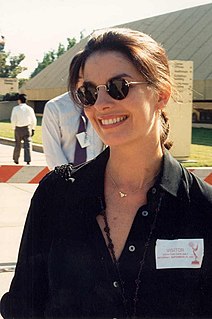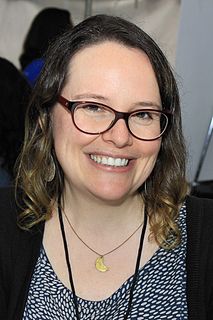A Quote by Anne Rice
First-person narrators is the way I know how to write a book with the greatest power and chance of artistic success.
Related Quotes
I always knew from the beginning that this was the only way to write Then We Came To The End - that it had to be in first - person plural if it was going to illustrate how the individual becomes part of the collective. I had no interest in writing the book in a more conventional voice. It goes back to that fascination I had with telling a story in multiple ways. It was the only choice I gave myself, really - I said "This is it, pal. If you can't tell a story this way, you're going to have to abandon the book. Write it this way or give up."
You all know that certain things are necessary to make a religion. First of all, there is the book. The power of the book is simply marvellous! Whatever it be, the book is the centre round which human allegiance gathers. Not one religion is living today but has a book. With all its rationalism and tall talk, humanity still clings to the books. In your country every attempt to start a religion without a book has failed. In India sects rise with great success, but within a few years they die down, because there is no book behind them. So in every other country.
Do not write to impress others. Authors who write to impress people have difficulty remaining true to themselves. A better path is to write what pleases you and pray that there are others like you. Your first and most important reader is you. If you write a book that pleases you, at least you know one person will like it.





































